
Patong: The Vibrant Heart of Phuket
Welcome to Patong, the bustling epicenter of Phuket that never sleeps. Known for its lively nightlife, stunning beaches, and a wide array of activities, Patong offers something for every traveler. Whether you're seeking adventure, relaxation, or a mix of both, this neighborhood won't disappoint. Patong Beach is the crown jewel of the area, stretching over three kilometers of soft, golden sand. It is perfect for sunbathing, swimming, and a myriad of water sports. As the sun sets, the beach transforms into a lively hub of entertainment with street performers and beachside bars. Bangla Road is the heartbeat of Patong's nightlife. After dark, this street comes alive with neon lights, music, and an array of bars and nightclubs. It's a place where you can dance the night away or simply enjoy people-watching in one of the many open-air bars. For those interested in shopping, Jungceylon Shopping Center is a must-visit. This massive complex offers everything from international brands to local souvenirs. Don't miss the nightly fountain show, which adds a touch of magic to your shopping experience. If you're a foodie, Patong won't disappoint. The neighborhood offers a wide range of dining options, from street food stalls serving traditional Thai dishes to upscale restaurants offering international cuisine. Try the fresh seafood at the local markets for an authentic taste of Phuket. For a touch of culture, visit the nearby Wat Suwan Khiri Wong, also known as Patong Temple. This beautiful temple complex offers a serene escape from the bustling streets and provides insight into local religious practices. Patong is also a great base for exploring the rest of Phuket. Day trips to nearby islands, snorkeling excursions, and jungle treks can all be easily arranged from here, making it a versatile destination for any traveler.
Local tips in Patong
- Visit Patong Beach early in the morning to avoid the crowds and enjoy a peaceful experience.
- Carry small change for street vendors and tuk-tuk rides; it makes transactions smoother.
- Wear comfortable shoes if you plan to explore Bangla Road at night as it involves a lot of walking.
- Haggling is common in local markets; don't hesitate to negotiate for a better price.
- Check the schedule for the nightly fountain show at Jungceylon Shopping Center.
Patong: The Vibrant Heart of Phuket
Welcome to Patong, the bustling epicenter of Phuket that never sleeps. Known for its lively nightlife, stunning beaches, and a wide array of activities, Patong offers something for every traveler. Whether you're seeking adventure, relaxation, or a mix of both, this neighborhood won't disappoint. Patong Beach is the crown jewel of the area, stretching over three kilometers of soft, golden sand. It is perfect for sunbathing, swimming, and a myriad of water sports. As the sun sets, the beach transforms into a lively hub of entertainment with street performers and beachside bars. Bangla Road is the heartbeat of Patong's nightlife. After dark, this street comes alive with neon lights, music, and an array of bars and nightclubs. It's a place where you can dance the night away or simply enjoy people-watching in one of the many open-air bars. For those interested in shopping, Jungceylon Shopping Center is a must-visit. This massive complex offers everything from international brands to local souvenirs. Don't miss the nightly fountain show, which adds a touch of magic to your shopping experience. If you're a foodie, Patong won't disappoint. The neighborhood offers a wide range of dining options, from street food stalls serving traditional Thai dishes to upscale restaurants offering international cuisine. Try the fresh seafood at the local markets for an authentic taste of Phuket. For a touch of culture, visit the nearby Wat Suwan Khiri Wong, also known as Patong Temple. This beautiful temple complex offers a serene escape from the bustling streets and provides insight into local religious practices. Patong is also a great base for exploring the rest of Phuket. Day trips to nearby islands, snorkeling excursions, and jungle treks can all be easily arranged from here, making it a versatile destination for any traveler.
Iconic landmarks you can’t miss
Tiger Kingdom - Phuket
Experience the thrill of close encounters with majestic tigers and exotic animals at Tiger Kingdom in Phuket, a must-visit wildlife attraction.
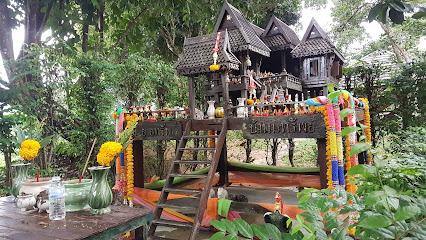
Bangla Night Market
Explore the vibrant Bangla Night Market in Phuket for a diverse culinary experience and unique shopping opportunities under the stars.
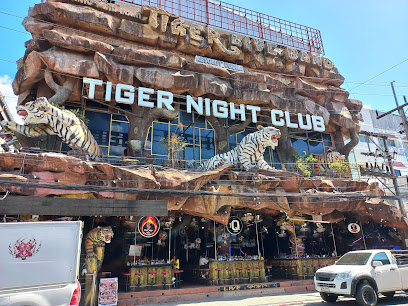
Patong Otop Shopping Paradise
Explore the colorful stalls of Patong Otop Shopping Paradise, where local crafts, delicious street food, and vibrant culture await every visitor.
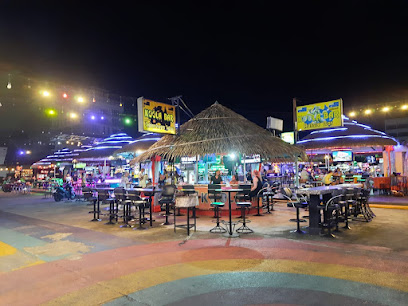
Patong Beach Bangla Walking Street
Discover the heart of Phuket's nightlife at Patong Beach Bangla Walking Street, where vibrant entertainment and delicious street food await.
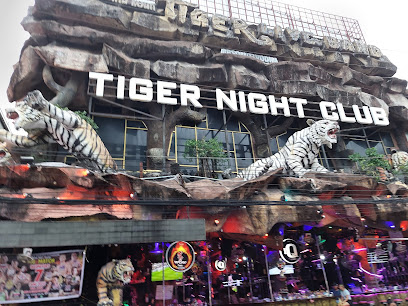
Rainbow Street | Had Patong Road
Experience the vibrant culture and nightlife of Rainbow Street near Had Patong Road, a must-visit tourist attraction in Phuket, Thailand.
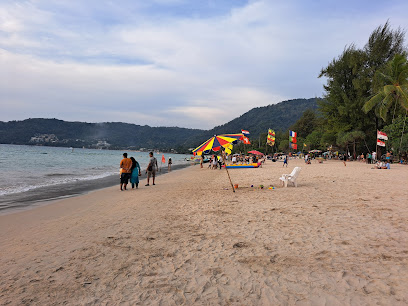
Patong beach Thailand
Experience the vibrant energy and stunning beauty of Patong Beach, Thailand's premier destination for sun, sand, and unforgettable adventures.
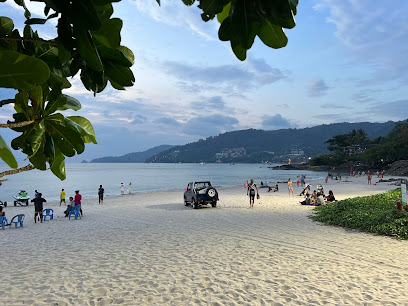
Patong Beach. Bangla Road Gate.
Experience the vibrant atmosphere of Patong Beach, where stunning views, thrilling water sports, and lively nightlife await every traveler.
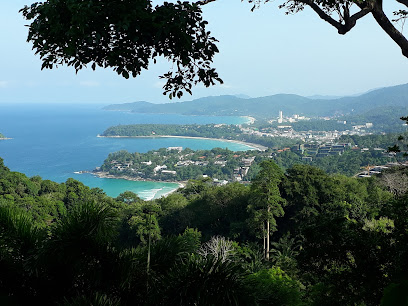
Dolphin Circle
Discover the enchanting Dolphin Circle in Phuket, a stunning sculpture that captures the essence of marine life and adds charm to your travel experience.
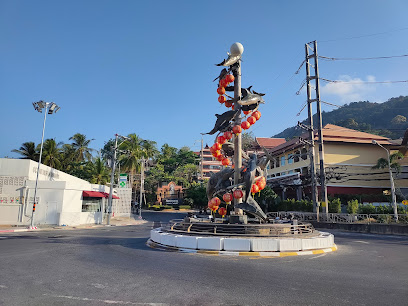
Patong Bay
Experience the vibrant culture, stunning beaches, and exhilarating nightlife of Patong Bay, the ultimate destination for your Phuket adventure.
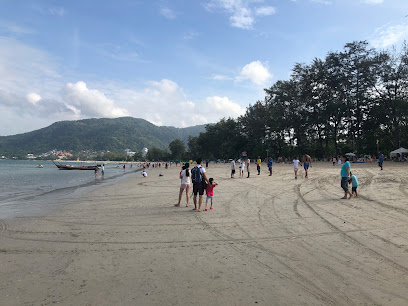
BUKVY
Experience the thrill of BUKVY, a vibrant fairground in Patong, Phuket, offering rides, games, and delicious food for the entire family.
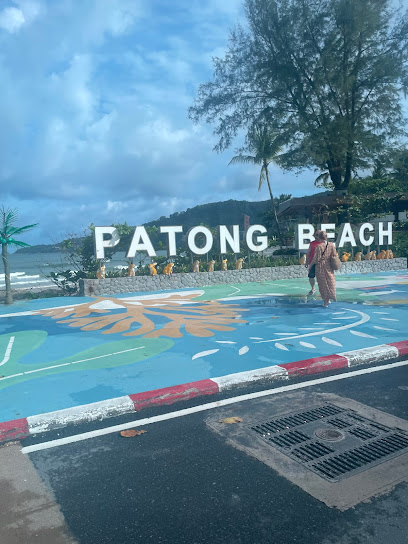
Unmissable attractions to see
Freedom Beach
Discover the untouched beauty of Freedom Beach, a tranquil paradise in Phuket with stunning views and crystal-clear waters, perfect for a peaceful getaway.
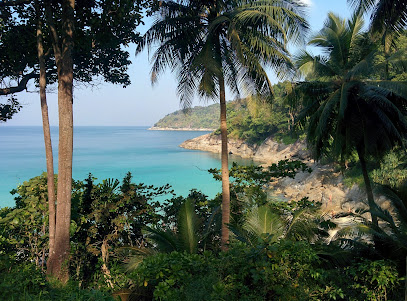
Kathu Waterfall
Discover the tranquility of Kathu Waterfall, a hidden gem in Phuket, perfect for swimming, hiking, and immersing in nature's beauty.
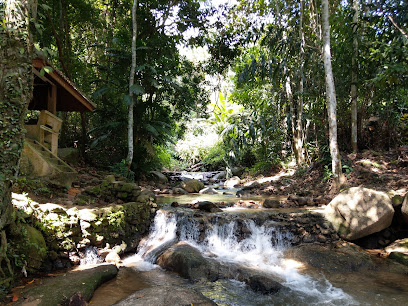
Flying Hanuman
Experience the thrill of zip-lining through Phuket's lush jungles at Flying Hanuman, where adventure meets breathtaking nature in a spectacular way.
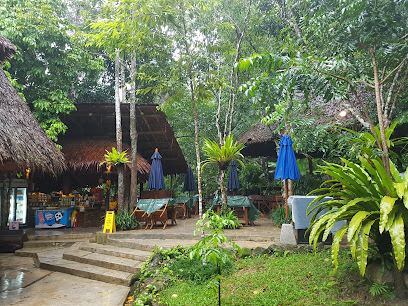
Patong Beach Bangla Walking Street
Experience the bustling energy and vibrant nightlife of Patong Beach at Bangla Walking Street, a must-visit destination in Phuket, Thailand.
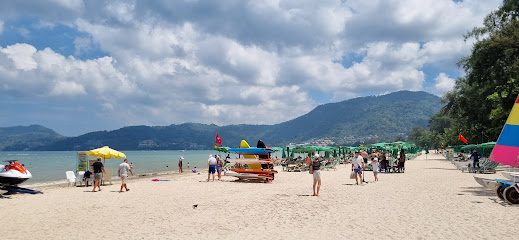
Patong beach Thailand
Discover the lively charm of Patong Beach, a premier destination in Thailand known for its stunning coastline and vibrant nightlife.
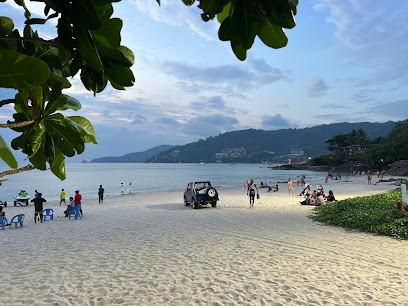
Elephant Swims @Lucky Beach, Tri Trang
Experience the thrill of swimming with elephants at Lucky Beach in Phuket, a unique attraction that combines adventure and wildlife conservation.
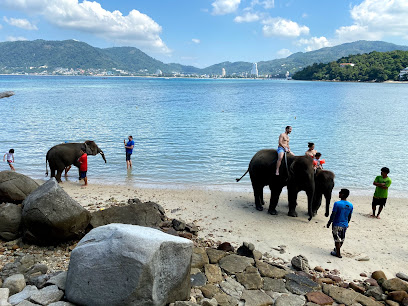
Kalim Viewpoint
Discover the serene beauty of Kalim Viewpoint in Phuket, where stunning sunsets and breathtaking coastal vistas await every traveler.
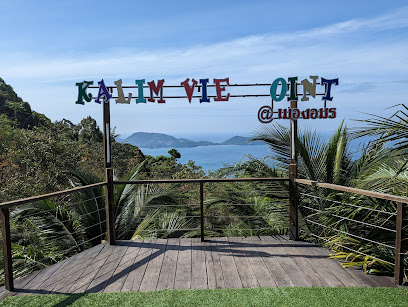
หาดฟรีดอม
Discover the lively atmosphere and breathtaking beauty of Pa Tong Beach, a premier destination in Phuket offering sun-soaked relaxation and thrilling adventures.
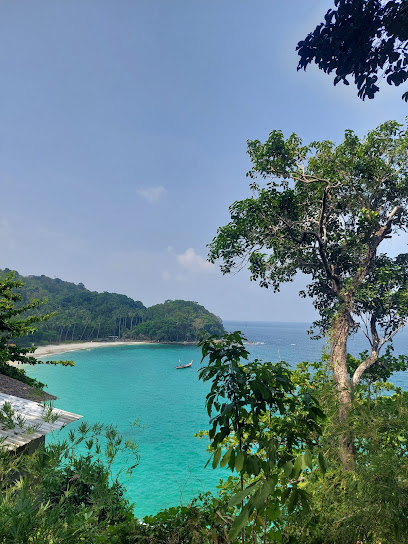
Jet Ski at Patong
Jet Ski at Patong Beach - Experience the thrill of speed on the crystal-clear waters of Phuket's most famous beach, an adventure not to be missed!
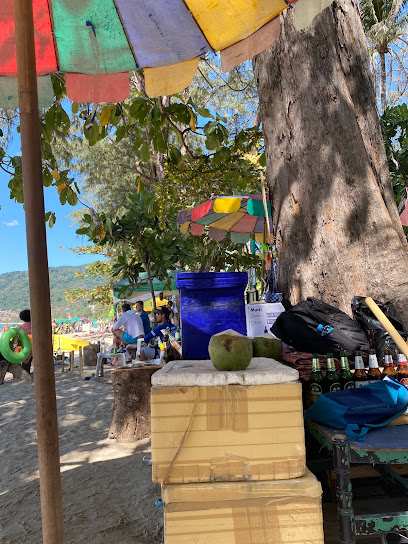
Essential places to dine
Georgia Restaurant
Experience the best blend of Thai and Georgian cuisines at Georgia Restaurant in vibrant Pa Tong, Phuket.
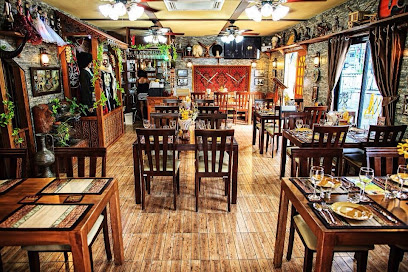
La Gritta
Experience exquisite Italian cuisine with breathtaking views at La Gritta in Patong Beach, Phuket's culinary gem.
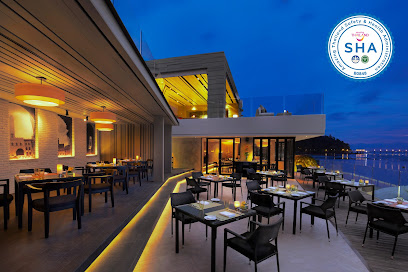
Patong Sunset View Restaurant
Dine with breathtaking sunset views at Patong Sunset View Restaurant, where exquisite flavors meet stunning scenery in Phuket.
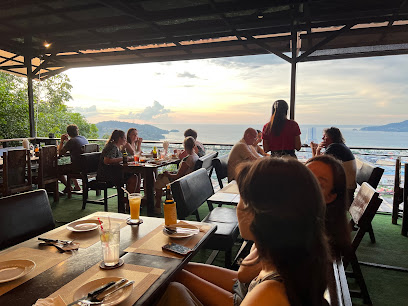
Acqua Restaurant
Experience exquisite Italian cuisine at Acqua Restaurant in Phuket - where flavor meets elegance in a beautiful setting.
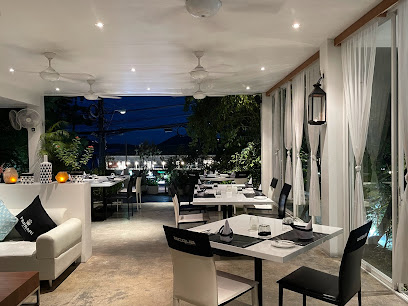
Kee Sky Lounge - Rooftop
Discover Kee Sky Lounge: Phuket's premier rooftop bar offering stunning sea views, exquisite cocktails, and delightful cuisine for an unforgettable experience.
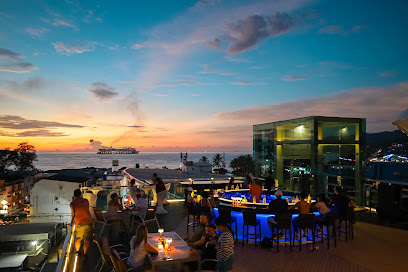
Tambu Phuket
Savor exquisite modern Indian cuisine at Tambu Phuket, where vibrant flavors meet stunning beachfront views.
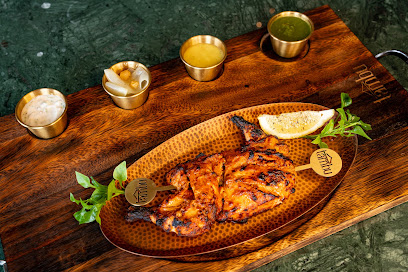
Sizzle Rooftop Restaurant
Experience breathtaking views and exquisite flavors at Sizzle Rooftop Restaurant in Phuket—where every meal is a feast for the senses.
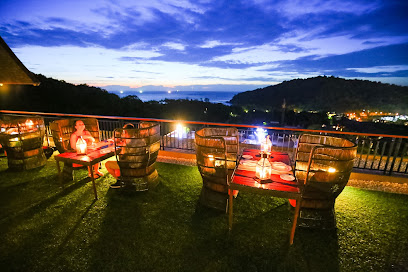
Le V restaurant
Indulge in exquisite French cuisine at Le V Restaurant in Patong, Phuket - where culinary artistry meets vibrant ambiance.
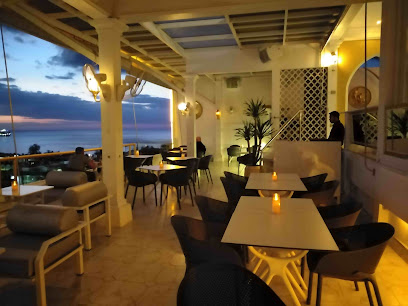
Kantok Restaurant Patong
Experience authentic Thai flavors at Kantok Restaurant Patong – where every meal is a celebration of culinary artistry.
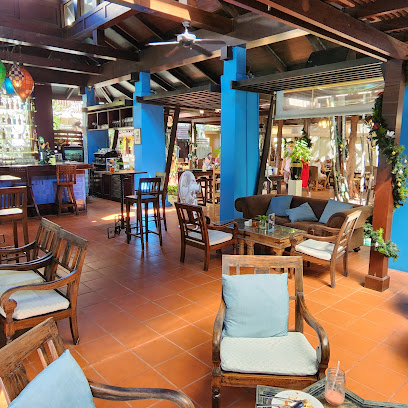
Brasserie C'est La Vie
Discover Brasserie C'est La Vie in Patong - where exquisite Thai cuisine meets international delights in an inviting atmosphere.
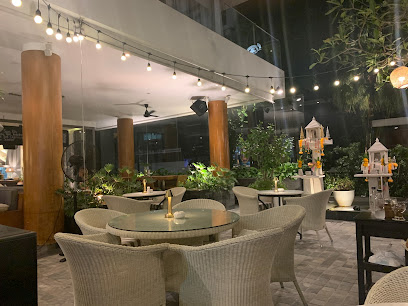
Markets, malls and hidden boutiques
Jungceylon
Explore Jungceylon, Phuket's ultimate shopping mall, featuring top brands, local delights, and exciting entertainment options in a vibrant atmosphere.
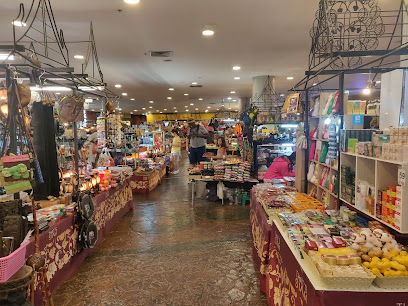
Central Patong
Explore Central Patong, Phuket's premier shopping destination featuring a wide range of local and international brands, dining, and entertainment.
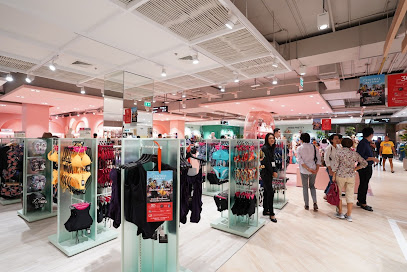
THC - Thai High Corp, Weed Cannabis & Kratom - Patong
Discover the finest cannabis products at THC - Thai High Corp in Patong, where quality meets culture in a vibrant atmosphere.
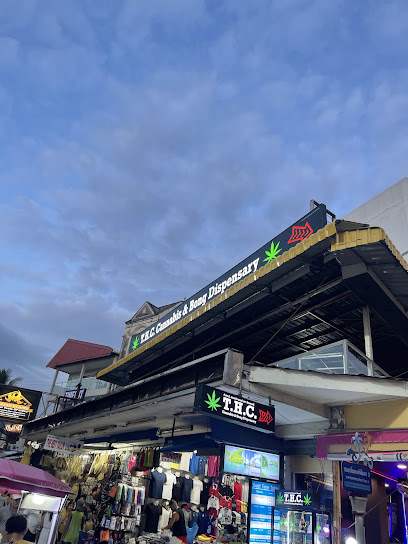
The Phuket Cannabis Club Patong
Experience the vibrant cannabis culture at The Phuket Cannabis Club Patong, where relaxation meets community in a lively atmosphere.
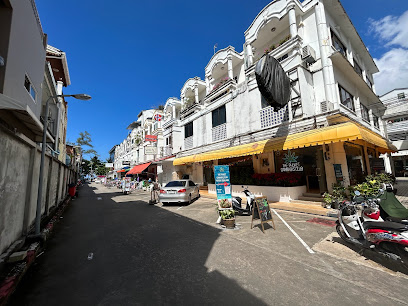
Magic Gallery
Explore Magic Gallery in Phuket for a unique cannabis shopping experience amidst beautiful island scenery and vibrant local culture.
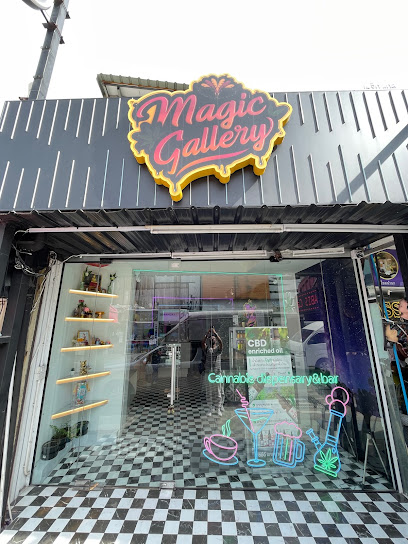
Weed Store Patong
Discover the best cannabis products and friendly service at Weed Store Patong, a top destination for cannabis enthusiasts in Phuket.
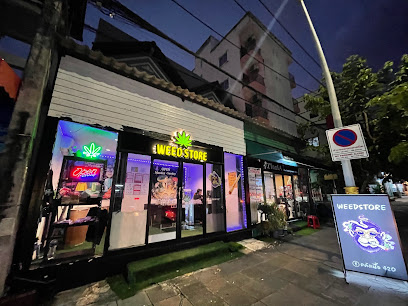
Moshi Moshi @ Jungceylon Shopping Centre
Discover the enchanting world of Moshi Moshi in Phuket, where unique Japanese gifts and adorable stationery await every visitor.

Bina souvenir & spa shop Phuket patong otop market
Discover authentic Thai souvenirs and rejuvenating spa treatments at Bina Souvenir & Spa Shop in Patong's OTOP Market.
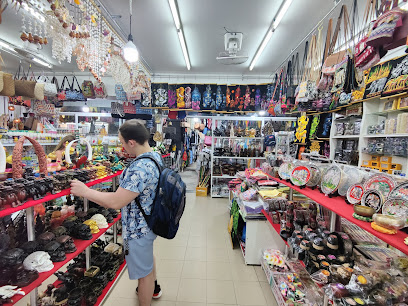
Nirmala Fancy Store
Discover unique vintage fashion at Nirmala Fancy Store in Patong, Phuket, where every piece tells a story and adds flair to your wardrobe.
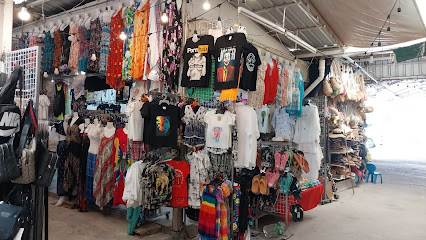
Devs Fashion clothing Souvenir Gift Shop
Discover unique clothing and authentic souvenirs at Devs Fashion in Phuket, a shopping gem for tourists and locals alike.
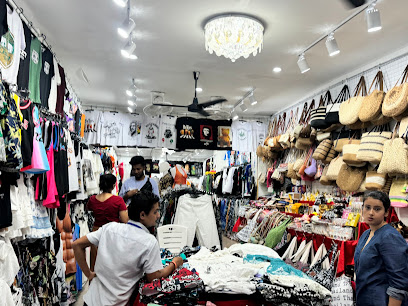
Asian art souvenir shop
Explore the vibrant Asian art scene at the Asian Art Souvenir Shop in Pa Tong, Phuket, where every piece tells a story.
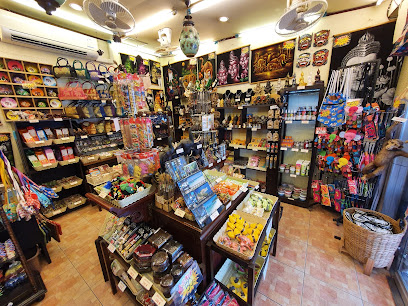
BBB shop patong
Explore BBB Shop Patong for unique souvenirs and gifts that capture the essence of Phuket's vibrant culture and artistry.
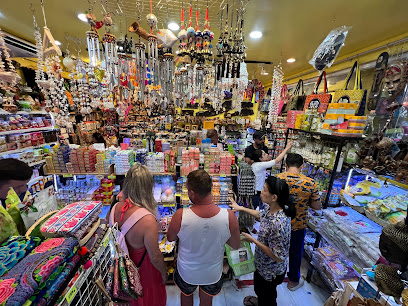
Souvenir shop
Explore a vibrant souvenir shop in Pa Tong, Phuket, filled with unique gifts and local artistry that captures the island's spirit.
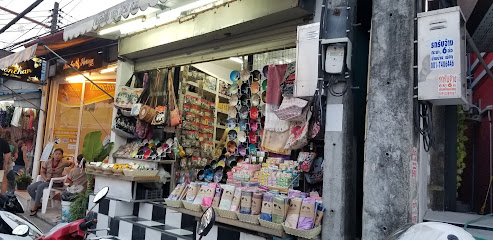
กะลาเพ้นท์ ป่าตองCoconut Shells Souvenir @Central Patong
Explore the artistry of Phuket at กะลาเพ้นท์ ป่าตอง, your go-to destination for handcrafted coconut shell souvenirs.
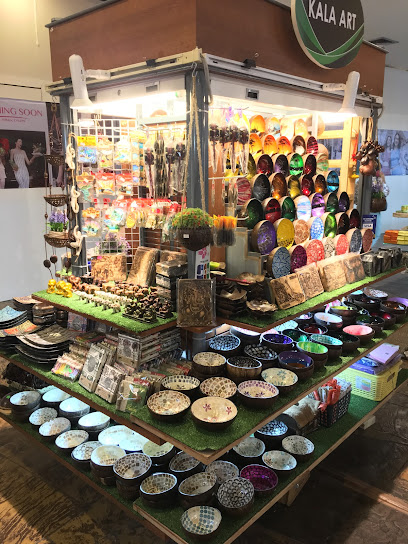
Essential bars & hidden hideouts
Aussie Bar
Unwind at Aussie Bar in Patong, Phuket, where delicious grilled dishes meet a vibrant nightlife experience, perfect for tourists seeking fun and flavor.
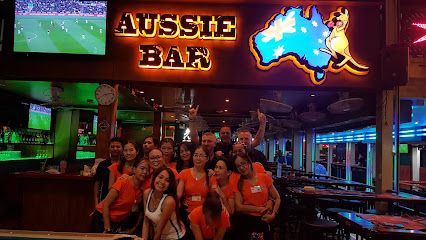
Barfunk Phuket
Experience the vibrant nightlife at Barfunk Phuket, the ultimate bar and nightclub destination on Bangla Road, where the party never ends.
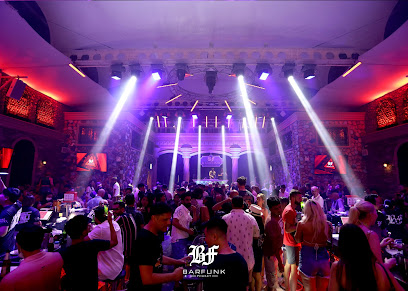
Roots Rock Reggae Bar & Shop
Discover the vibrant vibes of Roots Rock Reggae Bar & Shop, where reggae music meets a unique blend of cannabis and leather goods in Patong.
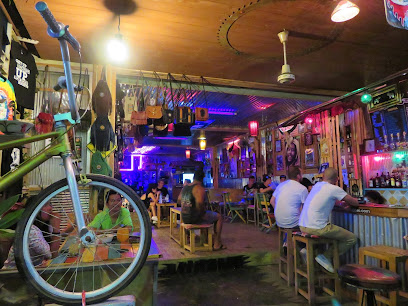
Patong Backpacker Bar - Phuket
Experience the vibrant nightlife of Phuket at Patong Backpacker Bar, where great drinks and a lively atmosphere await every traveler.
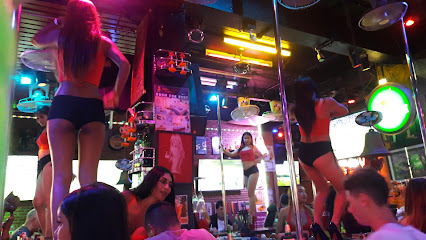
Bud's Beach Bar
Experience the ultimate beachside relaxation at Bud's Beach Bar in Phuket, where refreshing drinks and stunning views await.
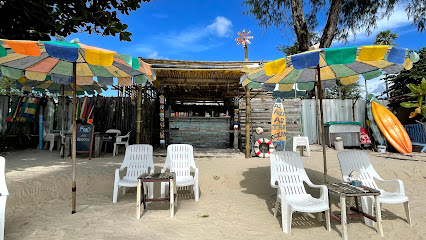
Rock Hard's Crazy Girls
Discover the electrifying nightlife at Rock Hard's Crazy Girls, Phuket’s top bar for entertainment, music, and unforgettable memories.
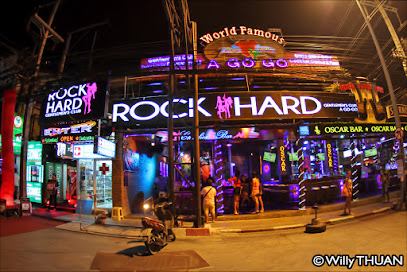
The Hole bar patong phuket
Experience the vibrant nightlife at The Hole Bar in Patong, Phuket, where diverse drinks and local charm create unforgettable moments.
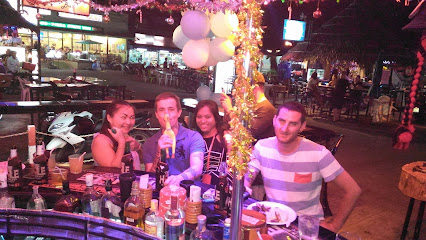
Mojitobar Patong Phuket
Experience the vibrant nightlife at Mojitobar Patong, a top beer garden in Phuket serving delicious mojitos and local flavors in a lively atmosphere.
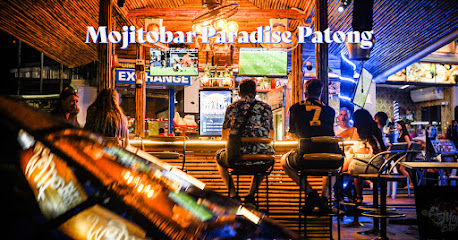
BRAIN DEAD BEER & GANJA BAR
Experience the vibrant nightlife of Patong at BRAIN DEAD BEER & GANJA BAR, a unique haven for craft beer lovers and social butterflies.
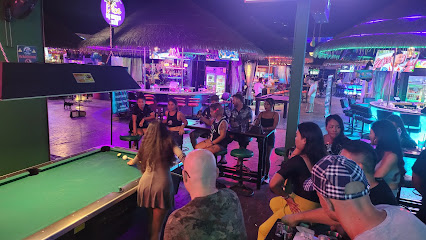
So cool Bar
Discover the heartbeat of Phuket's nightlife at So Cool Bar, where refreshing drinks meet an electrifying atmosphere in Pa Tong.
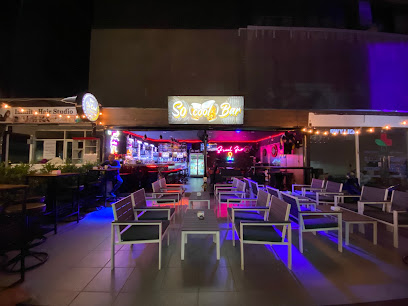
Local Phrases
-
- Helloสวัสดี
[sawasdee] - Goodbyeลาก่อน
[laa kon] - Yesใช่
[chai] - Noไม่
[mai] - Please/You're welcomeโปรด / ยินดีต้อนรับ
[proht / yin dee dton rap] - Thank youขอบคุณ
[kop khun] - Excuse me/Sorryขอโทษ
[kor toht] - How are you?สบายดีไหม
[sabai dee mai] - Fine. And you?สบายดีครับ และคุณ
[sabai dee krup lae kun] - Do you speak English?คุณพูดภาษาอังกฤษได้ไหม
[kun poot paa saa ang grit dai mai] - I don't understandฉันไม่เข้าใจ
[chan mai khao jai]
- Helloสวัสดี
-
- I'd like to see the menu, pleaseฉันอยากดูเมนู ขอ
[chan yak du menu kor] - I don't eat meatฉันไม่กินเนื้อ
[chan mai gin neuua] - Cheers!ชนเป็นเกียรติ
[chon pen kii yat] - I would like to pay, pleaseฉันต้องการจ่าย ขอ
[chan tong gaan jaai kor]
- I'd like to see the menu, pleaseฉันอยากดูเมนู ขอ
-
- Help!ช่วยด้วย
[chuay duay] - Go away!ไปทางไหน
[bpai taang nai] - Call the Police!โทรตำรวจ
[tor tam ruat] - Call a doctor!โทรหมอ
[tor mor] - I'm lostฉันหลงทาง
[chan long taang] - I'm illฉันไม่สบาย
[chan mai sabai]
- Help!ช่วยด้วย
-
- I'd like to buy...ฉันอยากซื้อ...
[chan yak seuu...] - I'm just lookingฉันเพิ่งดู
[chan perng duu] - How much is it?ราคาเท่าไหร่
[raa kaa tao rai] - That's too expensiveนั้นแพงเกินไป
[non paeng geern bpai] - Can you lower the price?ลดราคาได้ไหม
[lot raa kaa dai mai]
- I'd like to buy...ฉันอยากซื้อ...
-
- What time is it?ตอนนี้กี่โมง
[dton nee kee mong] - It's one o'clockเป็นหนึ่งโมง
[pen neung mong] - Half past (10)ครึ่งหลัง (10)
[krung lang (sip)] - Morningเช้า
[chao] - Afternoonบ่าย
[bai] - Eveningเย็น
[yen] - Yesterdayเมื่อวาน
[meua waan] - Todayวันนี้
[wan nee] - Tomorrowพรุ่งนี้
[proong nee] - 1หนึ่ง
[neung] - 2สอง
[song] - 3สาม
[sam] - 4สี่
[see] - 5ห้า
[ha] - 6หก
[hok] - 7เจ็ด
[jet] - 8แปด
[bpaaed] - 9เก้า
[gao] - 10สิบ
[sip]
- What time is it?ตอนนี้กี่โมง
-
- Where's a/the...?ที่ไหนมี...
[tee nai mee...] - What's the address?ที่อยู่อยู่ไหน
[tee yoo yoo nai] - Can you show me (on the map)?แสดงให้ฉันดูได้ไหม
[sadeung hai chan duu dai mai] - When's the next (bus)?รถบข้างหน้าเมื่อไหร่
[roht bpai kaang naa meua rai] - A ticket (to ....)ตั๋ว (ไป....)
[dtua (bpai....)]
- Where's a/the...?ที่ไหนมี...
History of Patong
-
Patong's history traces back to its origins as a small fishing village, primarily inhabited by local Thai communities. This early settlement relied on the abundant marine resources of the Andaman Sea, and fishing formed the backbone of their economy. The village's strategic coastal location also facilitated trade with passing ships, laying a foundation for its eventual growth into a significant town.
-
In the 19th century, Patong began to see influences from European colonial powers, particularly with the influx of tin mining activities in nearby regions. The need for transportation led to the development of roads that improved access to Patong, allowing it to flourish as a trade hub. This period marked the beginning of economic diversification for the village, as it transitioned from solely fishing to include trade and commerce.
-
The late 20th century marked a significant turning point for Patong, as it began to develop into a major tourist destination. The establishment of hotels, restaurants, and entertainment venues transformed the area, attracting visitors from around the world. The iconic Patong Beach became synonymous with nightlife and leisure, contributing to the wider recognition of Phuket as a premier tourist location in Thailand.
-
On December 26, 2004, Patong was severely affected by the Indian Ocean tsunami, which devastated the coastal region of Phuket. The disaster caused significant loss of life and damage to infrastructure. In the aftermath, extensive rebuilding efforts were undertaken, focusing on disaster preparedness and infrastructure improvement to enhance the resilience of the community against future natural disasters.
-
Today, Patong is a vibrant melting pot of cultures, influenced by the convergence of tourists and expatriates from various countries. The local Thai culture remains strong, with traditional festivals and customs still celebrated alongside international influences. This blend of cultures is evident in the culinary offerings, local markets, and the dynamic atmosphere of Patong, making it a unique place where historical roots and modern tourism coexist.
Patong Essentials
-
Patong is located approximately 40 kilometers from Phuket International Airport. The most common way to reach Patong is by taxi or shuttle service, which takes about 45 minutes. Alternatively, you can take a local bus from the airport to Phuket Town and then transfer to another bus heading to Patong. From other neighborhoods like Kata or Karon, local songthaews (shared taxis) are readily available and provide an affordable means of transport.
-
Patong is a pedestrian-friendly area, and many attractions are within walking distance. For longer distances, local tuk-tuks and motorbike taxis are widely available. Songthaews operate along main routes, providing an economical way to explore nearby areas. Bicycle rentals are also an option, allowing for a leisurely ride along the beach or through the local streets.
-
Patong is generally safe for tourists, but it is advisable to remain vigilant, especially in crowded areas. Avoid walking alone late at night and be cautious of your belongings. Areas around Soi Bangla, known for nightlife, can attract petty crime, so exercise caution and avoid displaying valuables.
-
In case of emergency, dial 191 for police assistance or 1669 for medical emergencies. Local hospitals are equipped to handle most health issues, and pharmacies are available for minor ailments. Having travel insurance that covers medical emergencies is highly recommended.
-
Fashion: Do wear light, breathable clothing due to the tropical climate, but avoid beachwear when not on the beach. Religion: Do respect local customs; when visiting temples, dress modestly and cover shoulders and knees. Public Transport: Do give up your seat for the elderly and disabled. Don't eat or drink on public transport. Greetings: Do greet locals with a polite 'Sawasdee' and a slight bow. Eating & Drinking: Do try street food and local delicacies. Don't engage in excessive public displays of affection, as they may be frowned upon.
-
To experience Patong like a local, venture to the local markets for fresh produce and authentic Thai snacks. Engage with friendly vendors and try unique dishes. Avoid tourist traps by exploring side streets, where you can find hidden gems and lesser-known restaurants. For nightlife, check out local bars that offer live music rather than popular tourist-packed clubs.
-
When visiting temples or local homes, it is customary to remove your shoes before entering. Always use your right hand when giving or receiving items, as the left hand is considered impolite. Showing respect to the Thai royal family is crucial; any negative comments can lead to serious consequences.
-
Stay hydrated and apply sunscreen frequently due to the hot climate. Be cautious with street food; ensure it is cooked thoroughly. It may be wise to consult with a healthcare provider about vaccinations before traveling, especially for long stays.
Nearby Cities to Patong
-
Things To Do in Krabi
-
Things To Do in Trang
-
Things To Do in Surat Thani
-
Things To Do in Nakhon Si Thammarat
-
Things To Do in Langkawi
-
Things To Do in Ranong
-
Things To Do in Satun
-
Things To Do in Koh Samui
-
Things To Do in Chumphon
-
Things To Do in George Town
-
Things To Do in Penang
-
Things To Do in Kota Bharu
-
Things To Do in Ipoh
-
Things To Do in Medan
-
Things To Do in Cameron Highlands









